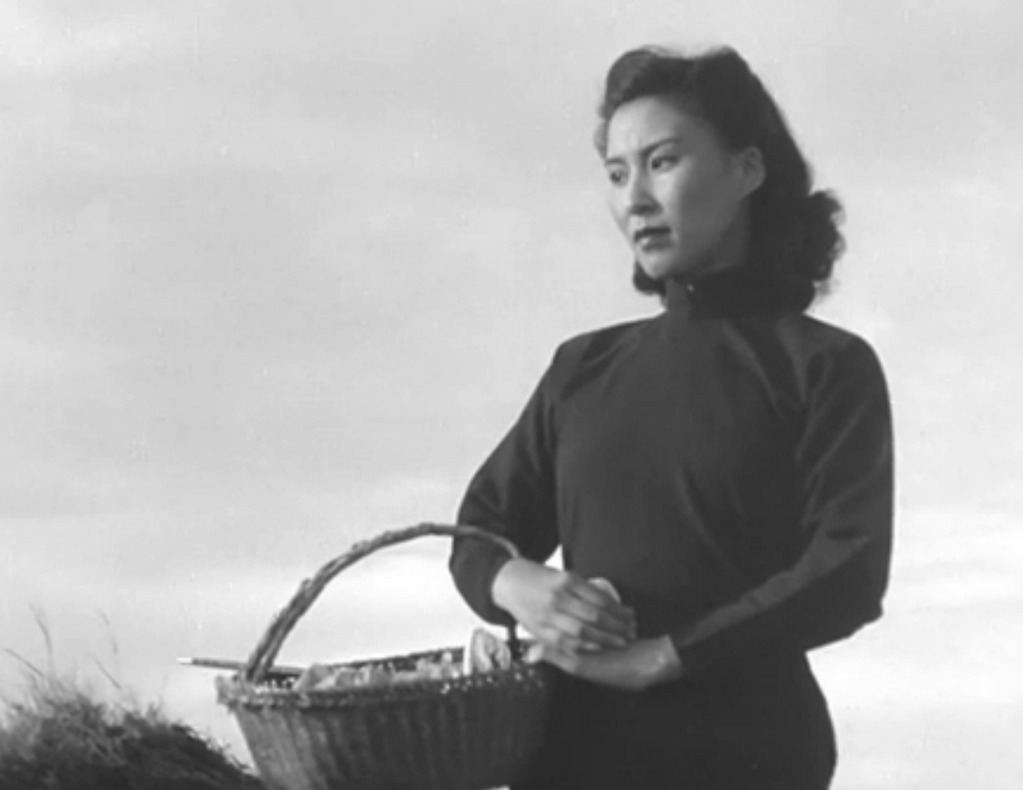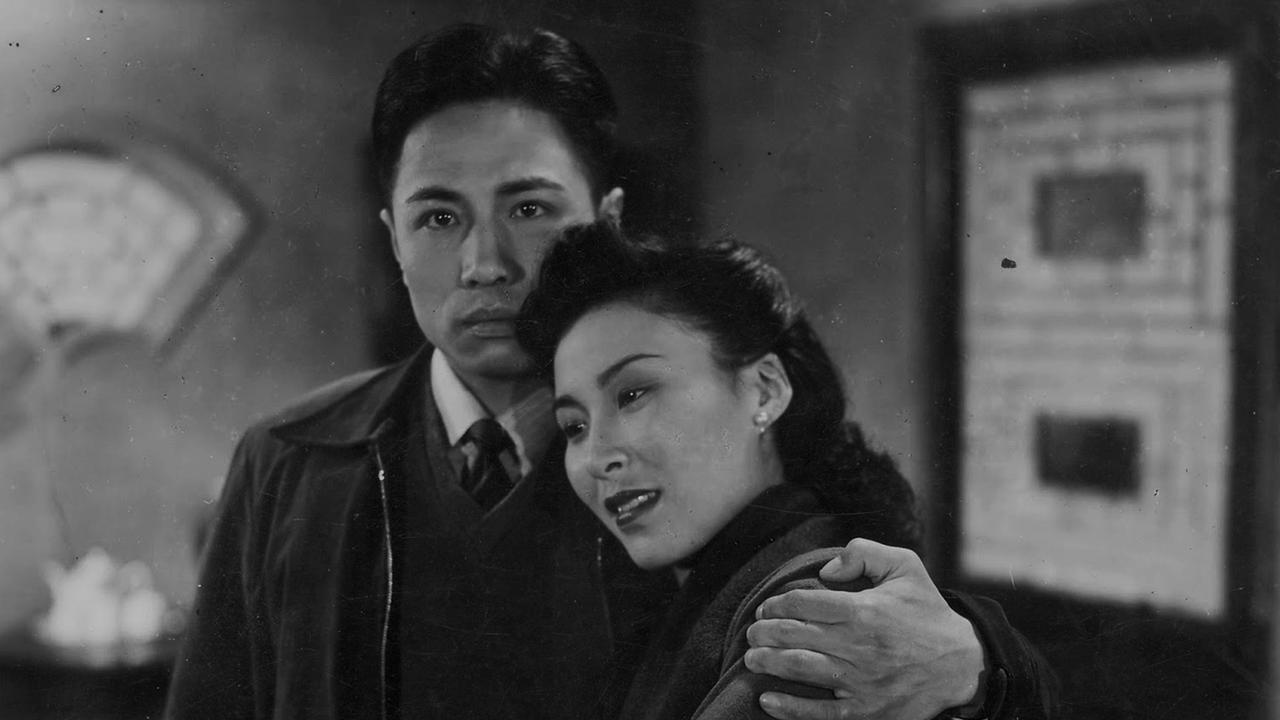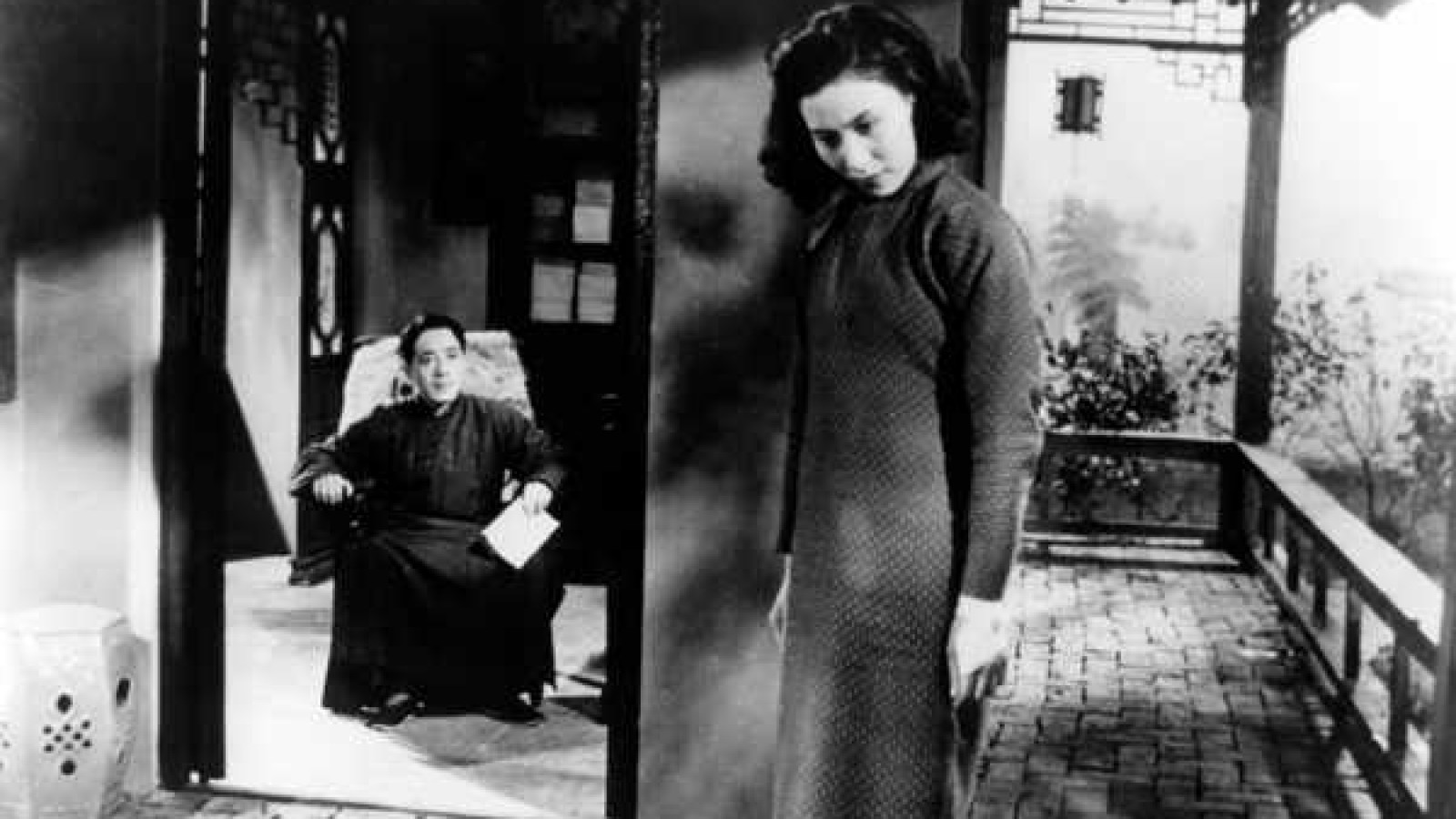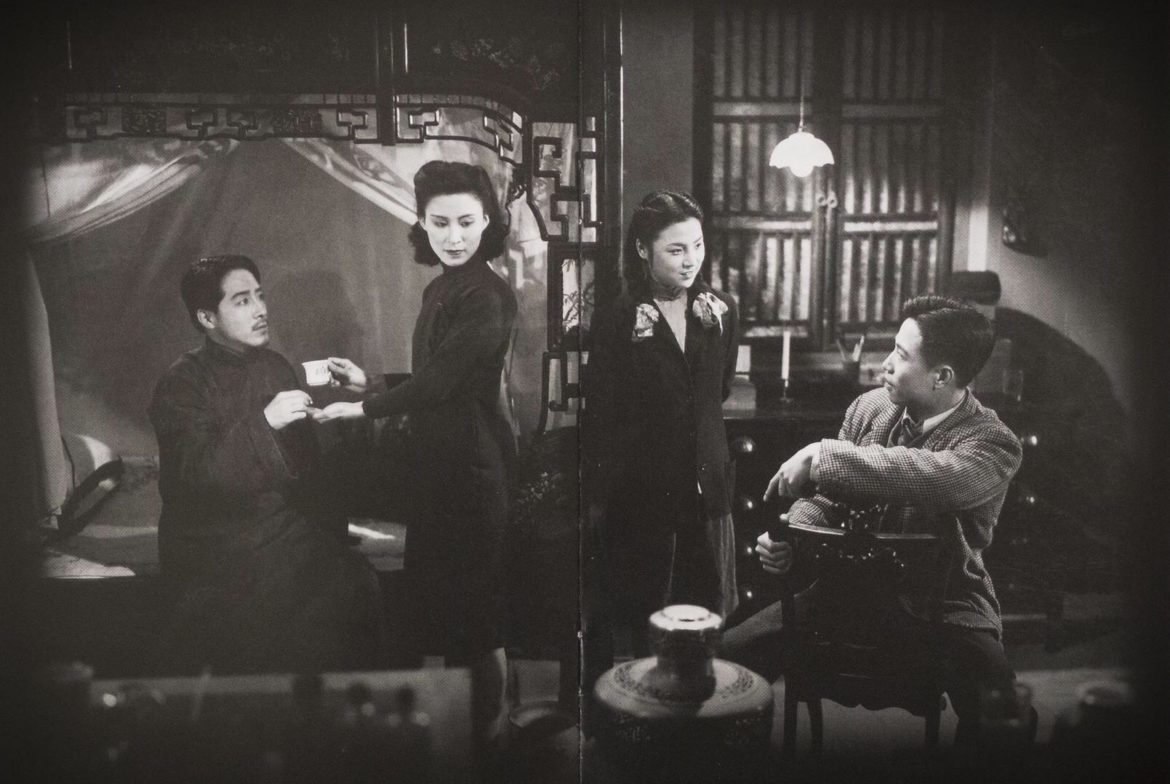A crumbling city wall runs along the hillside above the Dai estate, a once-great residence in similar disrepair. Through its cracks, we see the empty skyline stretching forever, and stones are scattered among the weeds. It’s an image of loneliness, faded glory, and nostalgia, and it forms the metaphorical centerpiece of Fei Mu’s 1948 masterpiece Spring In A Small Town.
A hushed melodrama that many have compared to Strindberg, Ophuls, and Renoir – and that clearly influenced Wong Kar-Wai, whose In The Mood For Love could be called a variation on its themes – Spring In A Small Town has had a curious history.
Rarely seen for decades, Fei Mu’s film was deemed politically regressive after the Communist Revolution, with state censors “suspicious of the film’s refusal either to romanticize the lives of ordinary people, or to make two-dimensional fools of the property-owner classes.” In fairness, those censors were, thankfully, correct on both counts. If sensitive portrayals of yearning and loss set amid post-war ruins are legitimate grounds for hiding art from public view, then Spring In A Small Town should’ve indeed been refused distribution. Of course, a less totalitarian sensibility would hold those qualities in high esteem instead, and it’s now more often referred to as one of the greatest Chinese films of all time.
The focus on the film’s political undercurrents is a bit ironic, given how steadfastly Mu focuses on the quiet, quotidian, and interpersonal. All art is, in some sense, political, but Spring In A Small Town is first, foremost, and overwhelmingly a melodrama, far more Letter From An Unknown Woman than Man With A Movie Camera.
 With only five characters and a handful of sets, the film is highly theatrical, relying on the evocation of mood (through repetition, framing, and design) to hint at internal dynamics. Its focus is a woman named Yuwen (Wei Wei), who introduces us to the time and place via voiceover. It’s from her vantage point we will mostly process the rest of the story.
With only five characters and a handful of sets, the film is highly theatrical, relying on the evocation of mood (through repetition, framing, and design) to hint at internal dynamics. Its focus is a woman named Yuwen (Wei Wei), who introduces us to the time and place via voiceover. It’s from her vantage point we will mostly process the rest of the story.
Yuwen is married to Liyan (Shi Yu), the heir to the Dai estate who has watched it fall into disrepair after the Sino-Japanese War – the characters navigate a broken landscape they have no money left to fix. Their marriage, though characterized by pro forma kindness and respect, is similarly bruised, seemingly fixed in time. Liyan believes he suffers from tuberculosis, a source of stress for the couple; his younger sister Meimei tends to think his ailment more mental than physical. It’s unclear what Lao Huang, the last remaining servant, thinks – he appears and vanishes, in and out of the frame, like a kindly ghost from long ago.
Yuwen deals with the depressive monotony of an unchanging, fallen landscape and a more or less loveless marriage to an invalid through walks along the ruined city wall. In fact, this is where we first meet her, and the two – woman and wall – are joined in our minds. Her subjectivity and interiority are made manifest through the image; at the same time, the locale implies an escape from drudgery, a permeable barrier that’s both stone and what lies beyond.
Things change suddenly with the arrival of Zhang Zhichen, Liyan’s childhood friend, now a doctor and adorned in western dress, returned after a decade to the radically changed estate. Yuwen’s portentous narration implies early on what we come to discover – she too has a history with Zhichen. The two were young lovers but missed their chance, and now reconnect under impossible circumstances for all involved.
 Generally speaking, little transpires outwardly – Spring In A Small Town is far more interested in longing than resolution, in glances than embraces. The narrative follows how each of these characters navigate an emotional chasm that none of them are eager to address out loud, but recognize to a person. As a result, the film takes on a sense that the things that matter are those that go unsaid, and the dialog features repetitions and polite placeholders desperately concealing the tumult beneath.
Generally speaking, little transpires outwardly – Spring In A Small Town is far more interested in longing than resolution, in glances than embraces. The narrative follows how each of these characters navigate an emotional chasm that none of them are eager to address out loud, but recognize to a person. As a result, the film takes on a sense that the things that matter are those that go unsaid, and the dialog features repetitions and polite placeholders desperately concealing the tumult beneath.
Meaning is conveyed instead through physical metaphor and framing. In a series of masterful choices, Mu fills us in on what characters cannot say. An early scene features the central four characters on a rowboat, taking the rare day out of the house: as the younger sister sings and the husband smiles, the camera moves languidly from Yuwen’s face, clenched, to Zhichen’s, pained, and back. It is as though we’re stealing the glance that the lovers cannot.
 In others, Mu emphasizes divisions within the frame – doorways separate husband from wife, again evoking notions of passage and separation; light from a single window creates frames within the frame, literalizing the emotional distance between characters. These are quiet touches that become more and more resonant as the film continues.
In others, Mu emphasizes divisions within the frame – doorways separate husband from wife, again evoking notions of passage and separation; light from a single window creates frames within the frame, literalizing the emotional distance between characters. These are quiet touches that become more and more resonant as the film continues.
In the end, Liyan attempts to abandon this life, at least in part out of love for the wife who he (with his illness) and fate (in its ambivalence) have made miserable. But Zhichen, the doctor and friend who would’ve conceivably benefited from that sacrifice, brings him back. Leaving town, Zhichen promises the younger sister he’ll return the following spring, perhaps even in time for her summer vacation. The husband climbs the hill to the ruined wall to join his wife, the first time we’ve seen them together at this locus of the film’s meaning, and they gaze into an unsure future as the camera fades.
It’s an evocative and powerfully ambiguous climax. What happens next is anyone’s guess, but it’s clear that things are not as they have been. The introduction of vitality and life, in the form of Zhichen and nearly forgotten love, has reanimated a static emotional landscape. It’s not clear there is happiness in his wake, but there’s hope. If not for something better, than for something different.
Is this what the censors feared? There’s something unstable and dangerous in the kind of desire Mu portrays, even if the portrayal itself is a remarkable portrait of repression. The “narcotizing effect” they decried only throws into relief this final moment – neither resignation nor resolution, it’s an image of potentiality, blocked by the ruined walls of the past and a cloudless sky which might, eventually, explode.
Part of an ongoing effort to watch a set of films from non-White, non-U.S., non-male, and/or non-straight filmmakers and depart a little from the Western canon. The intro and full list can be found here.

